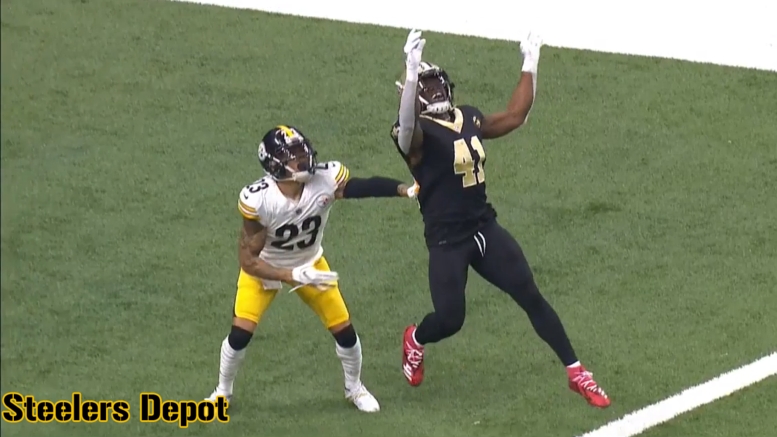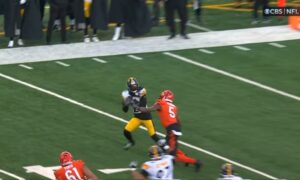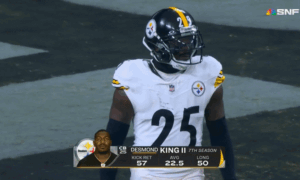The early portions of the offseason featured a lot of speculation over whether or not the league would make the attempt to expand the use of replay for the purpose of correcting errors in calling or failing to call penalties in certain contexts. There were about half a dozen distinctly different rules proposed, by the Competition Committee and by member teams, ahead of the March League Meeting.
Just as it seemed that nothing would happen, however, a late push driven by the coaches helped coax out an exception for pass interference penalties, which will be subject for review in 2019, whether the play was called or not called on the field. This was in the aftermath of a very high-profile missed pass interference call in the NFL Championship Game that likely played a role in flipping the result.
Since passing the rule, however, there had been a great deal of discussion about further tweaks that would be revisited later in the offseason, pertaining to how it would be officiated in Hail Mary situations, and who would be eligible to initiate a review during the ends of halves.
Ideas were considered, and then discarded, with the Competition Committee yesterday finalizing for the 2019 season that the rule would go forward as was originally passed in March. They also highlighted the fact that the rule will only apply to the upcoming season, and would have to be ‘renewed’, so to speak, or made permanent in 2020 if it were to continue.
One interesting point that was highlighted was that, while pass interference penalties would be held to the same “clear and obvious visual evidence” standard in order to be overturned once a replay has been initiated, there will be a different standard, inside of the two minutes at the end of each half, for the replay official.
“After the two-minute warning in each half, and during an overtime period, the Replay Official will stop the game to initiate a replay review for pass interference under stricter criteria/guidelines than is applicable for other reviewable play types”, it reads. “The rationale for the stricter criteria is to prevent excessive game clock stoppages for a foul that involves a greater degree of subjectivity than other reviewable plays”.
As is the case for the replay official in all other circumstances, he will only have the opportunity to view the play live and in the immediate broadcast angles that might be provided in order to determine whether or not a play merits review for pass interference, whether called or uncalled.
Of course, concerns will remain, because every game will contain a different replay official, and every replay official may have a different standard to initiate a review under stricter terms. Once initiated, it ultimately heads to Al Riveron to issue a final determination.








